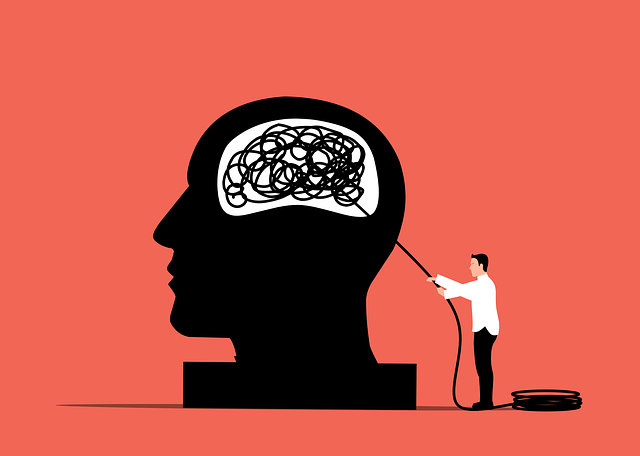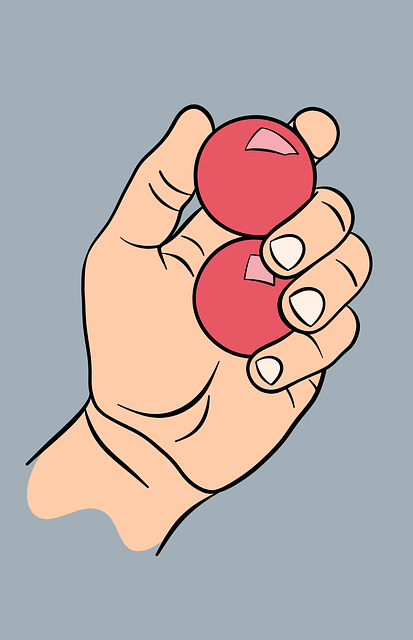In today's fast-paced world, effective time management is crucial for enhancing mental health and well-being. Stress relief therapy emphasizes prioritizing tasks, setting realistic goals, and establishing structured routines to combat stressors like heavy workloads and deadlines. By using tools like the Eisenhower Matrix, task lists, calendars, and mindfulness meditation, individuals can reduce stress levels, boost productivity, and improve overall quality of life. Time blocking and scheduling systems, integrated with self-care practices, offer structured approaches to balance work, hobbies, and therapy, fostering a healthier lifestyle. Overcoming procrastination through breaking tasks into manageable chunks and setting clear goals further enhances focus and energy levels, complementing stress relief therapy.
Time management counseling offers powerful tools for navigating modern life’s relentless pace, fostering mental well-being, and achieving goals. This comprehensive guide explores strategic approaches to tackle time-related stressors and enhance productivity. From understanding the impact of time management on mental health to implementing effective scheduling systems, you’ll discover techniques for prioritizing tasks, cultivating mindfulness, overcoming procrastination, and seamlessly integrating self-care into your routine—all crucial steps in pursuing stress relief therapy.
Understanding Time Management and Its Impact on Mental Health

Effective time management is a vital skill that can significantly impact our mental health and overall well-being. In today’s fast-paced world, where demands on our time are ever-increasing, managing our time efficiently becomes a crucial aspect of maintaining good mental health. Stress relief therapy often highlights the importance of prioritizing tasks, setting realistic goals, and creating structured routines to mitigate the negative effects of time pressures.
When individuals struggle with time management, it can lead to heightened stress levels, anxiety, and even depression. Unmanaged time can result in a sense of being overwhelmed, causing a cascade of negative emotions and physical symptoms. By learning effective time management strategies, one can reduce these stressors, gain a greater sense of control, and improve overall mental resilience. This, in turn, fosters better focus, increased productivity, and improved quality of life.
Identifying Time-Related Stressors and Triggers

Many individuals struggle with managing their time effectively, leading to increased stress and anxiety. Identifying time-related stressors is a crucial step in finding solutions. Stress relief therapy often begins by helping clients recognize triggers that cause them to feel overwhelmed. Common time management stressors include a heavy workload, tight deadlines, a lack of organization, or an inability to prioritize tasks. These issues can create a vicious cycle, leading to procrastination and further stress.
By understanding these triggers, individuals can develop strategies to manage their time better. This may involve setting realistic goals, creating structured schedules, practicing effective delegation, or learning to say no to non-essential commitments. Through therapy, clients learn to identify and address these stressors proactively, which ultimately contributes to improved well-being and reduced stress levels.
Techniques for Prioritizing Tasks and Boosting Productivity

Effective time management starts with prioritizing tasks, a skill that can be honed through various techniques. One powerful method is to utilize the Eisenhower Matrix, which categorizes tasks into four quadrants based on urgency and importance. This simple tool helps individuals focus on what’s truly essential, enabling them to spend more time on high-impact activities. By learning to differentiate between urgent and important, one can avoid the trap of spending excessive time on less critical matters, thereby boosting overall productivity.
Additionally, implementing task lists or calendars with set deadlines can significantly enhance productivity. Breaking down larger projects into smaller, manageable steps reduces the feeling of being overwhelmed, making it easier to begin and complete tasks. Integrating stress relief therapy techniques like mindfulness meditation or short breaks for stretching can also refresh the mind, improve focus, and prevent burnout, ultimately contributing to a more productive work environment.
Creating Effective Time Blocking and Scheduling Systems

Creating effective time blocking and scheduling systems is a powerful tool in time management counseling, offering a structured approach to reduce stress and increase productivity. By segmenting your day into blocks dedicated to specific tasks or activities, you gain clarity and control over how you spend your time. This strategy enables individuals to prioritize their commitments, whether it’s work projects, personal hobbies, or self-care practices, such as stress relief therapy.
A well-designed schedule ensures that important tasks get the attention they deserve without feeling overwhelmed. It allows for a balanced routine, where various aspects of life are given equal weight, leading to improved focus and overall satisfaction. With efficient time blocking, individuals can better manage their energy levels, avoid procrastination, and create a harmonious relationship with time, ultimately fostering a healthier and less stressful lifestyle.
Mindfulness and Meditation for Better Time Awareness

Mindfulness and meditation have emerged as powerful tools for enhancing time awareness, a key aspect of effective time management. By focusing on the present moment, individuals can develop a deeper sense of calm and clarity, allowing them to prioritize tasks and make the most of their time. Regular mindfulness practice enables people to become more attuned to their thoughts and feelings, helping them identify and let go of distractions that often lead to procrastination.
Incorporating meditation into daily routines can significantly reduce stress levels, a common barrier to productive time management. Stress relief therapy techniques teach individuals to recognize and manage anxiety, thereby improving focus and decision-making abilities. As mindfulness strengthens one’s connection with the present, it becomes easier to avoid getting overwhelmed by deadlines or future commitments, fostering a healthier relationship with time.
Overcoming Procrastination: Strategies for Instant Motivation

Procrastination is a common obstacle on the path to productivity, often fueled by stress and anxiety. To overcome this challenge, individuals can employ various strategies that promote instant motivation. One effective approach is to break down tasks into manageable chunks, setting clear and achievable goals. By doing so, the daunting nature of large projects is mitigated, allowing for a sense of accomplishment as each step is completed.
Additionally, incorporating short breaks between tasks can significantly enhance focus and energy levels. Techniques like the Pomodoro Technique, which involves working in focused bursts with intentional rest periods, have proven to be valuable tools. Combining these strategies with stress relief therapy can create an environment conducive to productivity, empowering individuals to tackle tasks without the weight of procrastination holding them back.
Integrating Self-Care into a Managed Schedule for Stress Relief Therapy

In the pursuit of effective time management, integrating self-care practices is a powerful strategy to enhance overall well-being and support stress relief therapy. A structured schedule that allocates dedicated time for personal care can significantly mitigate the demands and pressures of daily life. This might include activities such as regular exercise, mindfulness practices, sufficient sleep, and engaging in hobbies or creative outlets. By incorporating these rejuvenating moments into a carefully planned routine, individuals can create a healthy balance, reducing stress levels and fostering resilience.
A balanced approach to time management acknowledges the importance of both productivity and self-nurturing. When incorporated thoughtfully, self-care activities become essential tools in managing stress, allowing for improved focus, clarity, and emotional regulation. This integration empowers individuals to not only accomplish tasks efficiently but also to maintain a sense of equilibrium, ensuring that stress relief therapy is complemented by a holistic approach to personal care.
